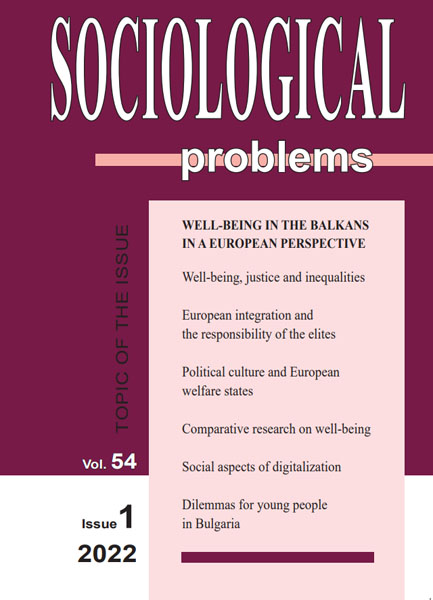Kuznets in Sofia? Why are Wage and Income Inequalities in Bulgaria So High?
Kuznets in Sofia? Why are Wage and Income Inequalities in Bulgaria So High?
Author(s): Martin HeidenreichSubject(s): Social Sciences, Sociology, Family and social welfare, Economic development, Globalization
Published by: Институт по философия и социология при БАН
Keywords: Income inequality; wage inequality; Kuznets curve; social security
Summary/Abstract: Income inequalities in Bulgaria are higher and are increasing more than in any other EU member state. On the basis of the Kuznets curve, high income inequality could be understood as the result of a sectoral shift from an industrialized to a service-centred society. However, such an explanation ignores the changing occupational structures and institutional contexts of a post-Socialist society integrating itself in European and global value chains. On the basis of micro-data on wage and income structures, the polarization of sectoral, educational, and occupational structures, the pluralization of life styles and the low impact of egalitarian institutions is shown. The Bulgarian example highlights the extraordinary challenges and social risks post-Socialist transition and modernization processes still imply for some groups and countries and for the social cohesion of Europe as a whole.
Journal: Социологически проблеми
- Issue Year: 54/2022
- Issue No: 1
- Page Range: 71-103
- Page Count: 33
- Language: English
- Content File-PDF

